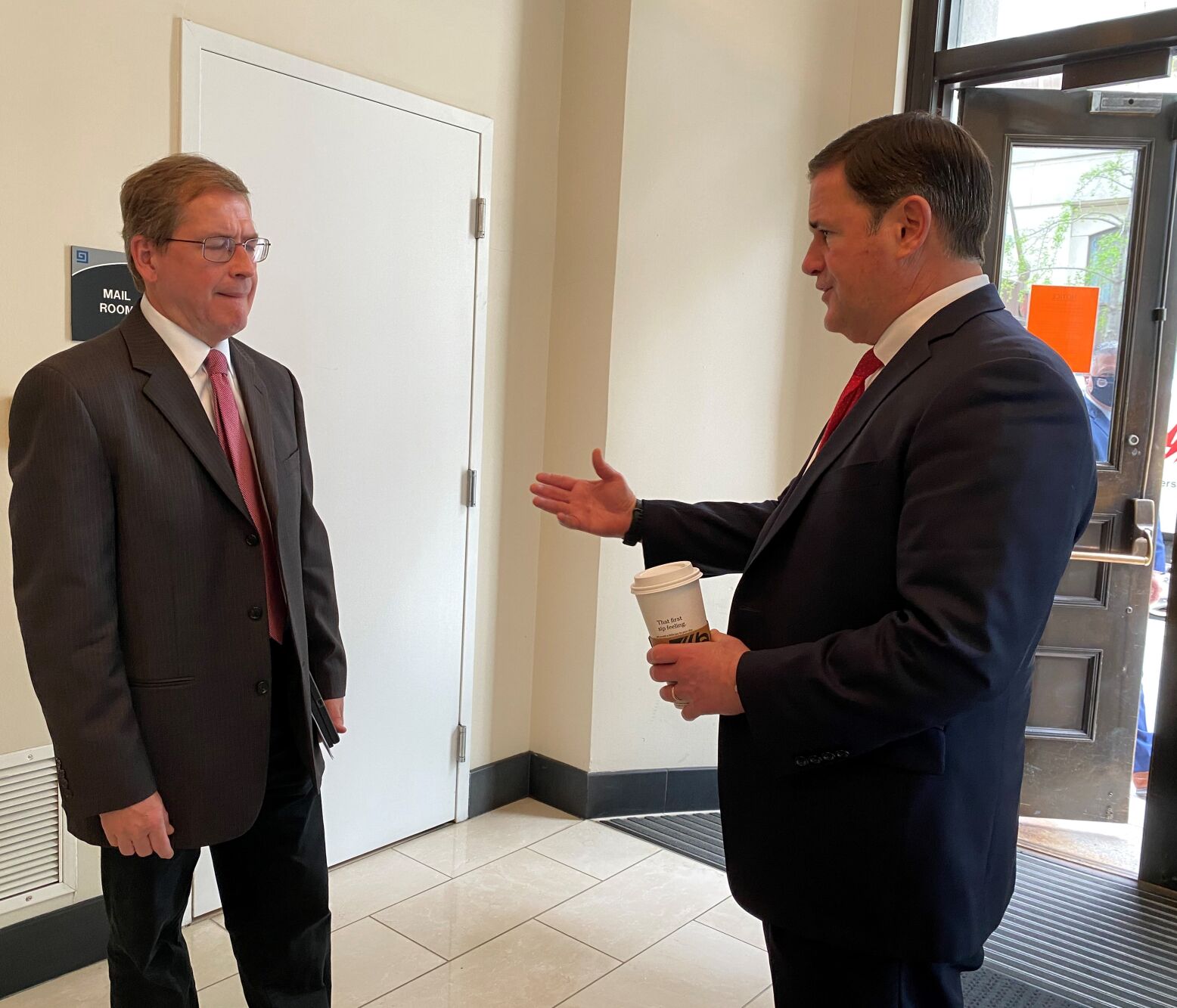If you listened to Gov. Doug Ducey or the Arizona Chamber of Commerce last fall, you might be surprised to see that the state’s economy is thriving.
Remember the campaign in the run-up to the Nov. 3 election? The chamber, governor and other representatives of big money said Proposition 208, a proposed income-tax surcharge to fund education, posed a dire risk to Arizona’s economy.
The initiative, Ducey wrote in an op-ed, “proposes a dramatic tax increase that will hobble the state’s recovery during one of the most challenging economic periods we’ve ever faced.”
Economist Elliott Pollack told an Arizona Chamber of Commerce event: “For the first time in the 50 years I’ve been a practicing economist in Arizona, it would do something that would hurt economic development in the short- and long-run.”
He added: “This is a disaster waiting to happen.”
Proposition 208 passed anyway, by a margin of 3.5 percentage points — 51.75% to 48.25%. It creates a 3.5% surcharge on incomes above $250,000 for single people or $500,000 for married couples.
Maybe it passed because Arizona voters had heard similar overblown warnings before passing the minimum wage initiative, Proposition 206, in 2016. Those dire predictions didn’t pan out either. The boys cried wolf.
But now a second pattern is repeating itself. After Proposition 206 passed, even though the minimum wage increase caused few economic problems and had the desired effect on low-end wages, big-money interests succeeded at making initiatives much harder to put on the ballot.
We had to be punished for passing the minimum-wage initiative, even though overall it worked as hoped.
Now we are being punished for passing Proposition 208 with a new flat-tax proposal, even though none of the initiative’s predicted disastrous effects has shown signs of occurring.
Quite the contrary, in fact, if you listen to the same voices who were decrying the proposition a few short months ago.
As Ducey said in a May 24 tweet:
AZ’s economy is booming!
✓ More businesses choosing AZ
✓ Projected 325K new jobs by Spring ‘22
✓ $1B in our Rainy Day Fund
The Arizona Commerce Authority has also been trumpeting our economic success in a series of headlines. They continue to talk about companies relocating or expanding in Arizona, a phenomenon that was supposed to be harmed by Proposition 208.
“Li-Cycle to Build New Lithium-Ion Battery Recycling Facility in Arizona” says an April 14 press release from the commerce authority.
“CIS Global Expands Headquarters in Tucson, Arizona,” says a May 5 release.
“ElectraMeccanica Breaks Ground On First U.S. Based Assembly Facility And Engineering Technical Center,” says a May 11 release.
So, it turns out, Proposition 208 has not had an appreciable negative effect on Arizona’s economy. True, these tax surcharges aren’t to be paid till next year, but as Pollack and others predicted during the campaign, the effects were to be short-term as well.
No matter. Ducey is trying to undo what 208 did, either through the courts or through legislation. His plan would tax all income groups at a 2.5% rate, slashing a full 25% of income tax revenue. The top 5% of earners in Arizona would get 74% of the benefit, while the bottom 80% of earners would only realize 8% of the tax savings, according to an analysis by the Institute for Taxation and Economic Policy.
The revenue cuts even have GOP legislators worried about what will happen to government services. Arizona cities expect the state-shared revenue they rely on to collapse if the flat tax passes.
But Ducey has his eyes on higher office, maybe the highest one. And he’s long allied himself with the supply-side political movement that used to dominate the GOP in the pre-Trump years and always works to defend the wealthy first.
Twice in the last six months, on Dec. 15 and on April 13, Ducey has tweeted about talking with Grover Norquist, the notorious head of Americans for Tax Reform and evangelist for tax cuts. He always calls the cuts “tax reform,” though — that phrase sells better.
Five days after Norquist met Ducey in Washington, D.C., Norquist penned an op-ed in the Washington Examiner, headlined “Will Arizona become the national model for tax reform?”
It won’t, because this model has already been tried. Kansas slashed its income taxes an in 2012, in a supply-side move supported by Norquist. Economic growth did not accelerate, tax revenue fell behind, and Republican legislators abandoned the plan in 2017.
But an income-tax surcharge on the wealthiest Arizonans was intolerable. For passing it, we had to be punished.
Learn the four basic rules of recycling from Tucson Environmental Services plus a reminder not to recycle plastic grocery bags in curbside recycling. Video courtesy of Tucson Environmental Services.






